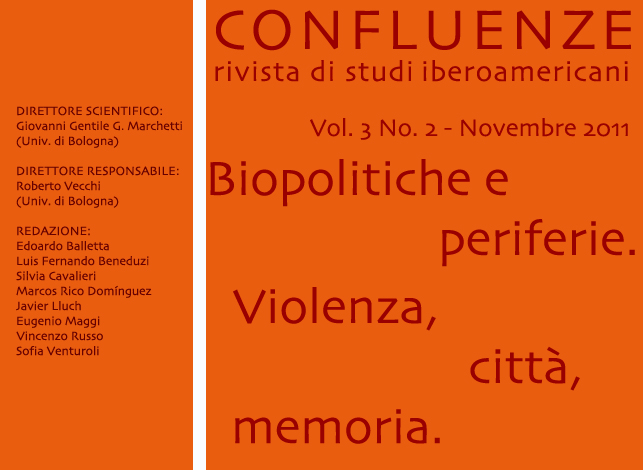Viaggio e incertezza, fatalità e ribellione in Ekomo di María Nsue Angüe
DOI:
https://doi.org/10.6092/issn.2036-0967/2394Palabras clave:
María Nsue Angüe, Literature of Equatorial Guinea, Afro-Spanish literatures, Postcolonial African novelResumen
María Nsue Angüe’s novel Ekomo (1985) is a classic of hispanophone Equatorial Guinea, presenting the world vision and experience of a young woman, an ethnic Fang living in rural area, during the decolonization of Africa. This study examines the spacetime coordinates and the cultural conflicts detectable in the text and proposes a map of the main interacting isotopies: journey (therapeutic, initiatory, through memory and myths) and borders (physical, temporal, mental and between life and death), uncertainty and helplessness, destiny and mourning, corporeality and rebellion.
Descargas
Publicado
Cómo citar
Número
Sección
Licencia
Derechos de autor 2011 Danilo Manera
Los derechos de autor y publicación de todos los textos de esta revista pertenecen a sus respectivos autores sin restricciones.
Esta obra está bajo una licencia de Creative Commons Reconocimiento 4.0 Internacional (código legal completo).
Véase también nuestra Open Access Policy.
Metadatos
Todos los metadatos del material publicado son de dominio público y pueden ser utilizados por cualquier persona de forma gratuita. Esto incluye las referencias.
Los metadatos -incluidas las referencias- pueden reutilizarse en cualquier medio sin autorización previa, tanto con fines lucrativos como no lucrativos. Rogamos a los usuarios que faciliten un enlace al registro de metadatos original.






